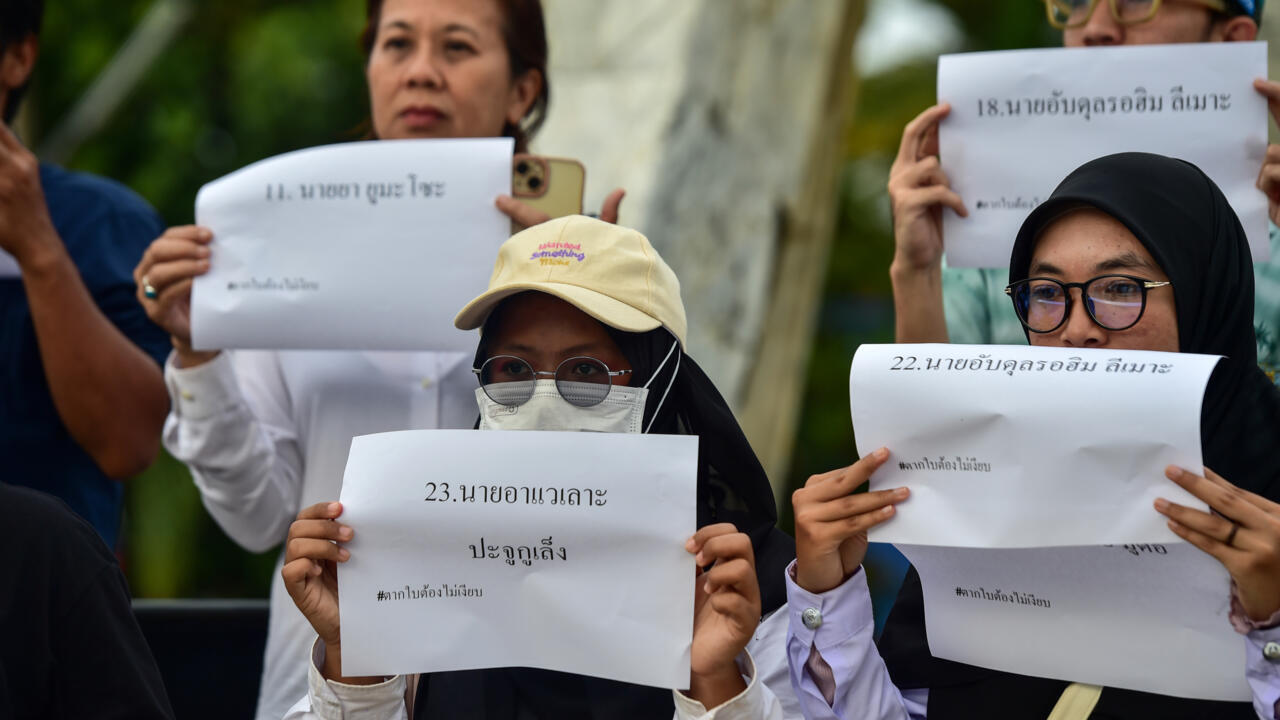Twenty years after the October 25, 2004 tragedy, known as the “Tak Bai massacre”, Musa and the other relatives of the 78 victims, are mourning the fact that the killers will never be brought to justice. On Friday, the 20-year statute of limitations expires, and murder charges against the seven suspects will be dropped.
The incident is one of the bloodiest days in the long-running conflict in Thailand’s deep south between government forces and separatist insurgents.
“There is no natural justice in our country,” Musa told AFP in an interview, “It’s not equal… we in the southernmost provinces are not part of the (Thai) family. Our voices are just not loud enough.”
The case has long stood as an emblem of state impunity in the kingdom’s Muslim-majority southernmost provinces, which are culturally distinct from the rest of mostly Buddhist Thailand. A low-level conflict between security forces and insurgents demanding more autonomy for the region has killed more than 7,000 people since January 2004.
On October 25 that year, security forces opened fire on a crowd protesting outside a police station in the town of Tak Bai in Narathiwat province, close to the Malaysian border, killing seven people. Subsequently 78 people suffocated after they were arrested and stacked on top of each other in the back of Thai military trucks, face down and with their hands tied behind their backs.
No member of the Thai security forces has ever been jailed for extrajudicial killings or torture in the “deep south”, despite years of allegations of abuses across the region.
In 2012, the government of then-prime minister Yingluck Shinawatra paid the families of each of the dead 7.5 million baht ($220,000) in compensation. “But,” Parida said, “in exchange for my son’s life it was not worth it.”


